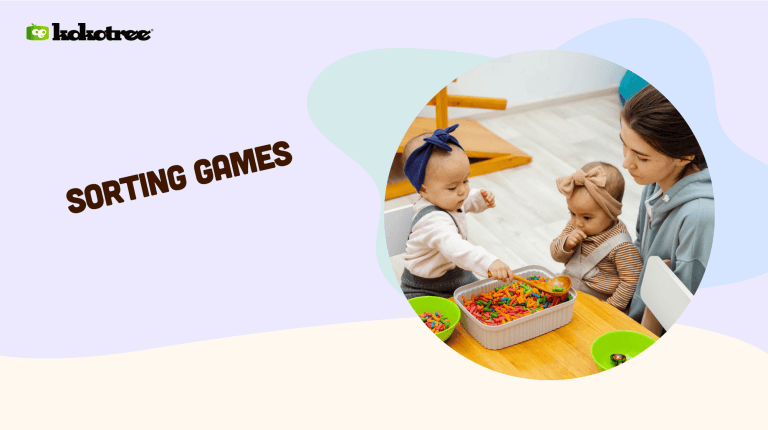

Written by: Kokotree
Updated:

Sorting Games, captivating and immensely popular among little ones, not only provide endless fun but also contribute significantly to their developmental milestones. A simple sorting activity involving everyday objects or toys lets children distinguish and categorize based on color, shape, or size, thereby offering an effective way to stimulate their analytical, cognitive, and motor skills.
Sorting Games are interactive activities that engage toddlers and preschoolers in categorizing items like toys, everyday objects, or other tangible items based on their features such as color, shape, or size. It’s an enriching game that cultivates cognitive and perceptual abilities, improves decision-making skills, enhances observational acumen, and fine-tunes motor skills.
For ages 2-6. They watch and play for 20 minutes. You get a break.
⭐ 5,000+ parents get daily breaks with Kokotree.
Try it Free →Works in 30 seconds • No credit card • Cancel anytime
The primary aim of Sorting Games is to help children distinguish and categorize objects based on their attributes, thereby developing their observational skills, analytical ability, and cognitive and motor skills.
For ages 2-6. They watch and play for 20 minutes. You get a break.
⭐ 5,000+ parents get daily breaks with Kokotree.
Try it Free →Works in 30 seconds • No credit card • Cancel anytime
Sorting Games significantly contribute to several areas of a child’s development:
To keep your little one consistently engaged, try these fun variations:
Ensure the items used for sorting are larger than the child’s mouth to avoid choking hazards. Always supervise the game, especially when small objects are involved.
With all you’ve now learned about Sorting Games, it’s high time you introduce your little ones to these fun preschool activities that double as developmental tools. So, set up the platforms, gather up those toys and everyday objects, and let the sorting fun begin! As we know from the popular kids game ‘Musical Chairs‘, children love anything structured like a game. Just like ‘Musical Chairs’ can get kids moving, Sorting Games can get their tiny brains storming while keeping them thoroughly engaged.



